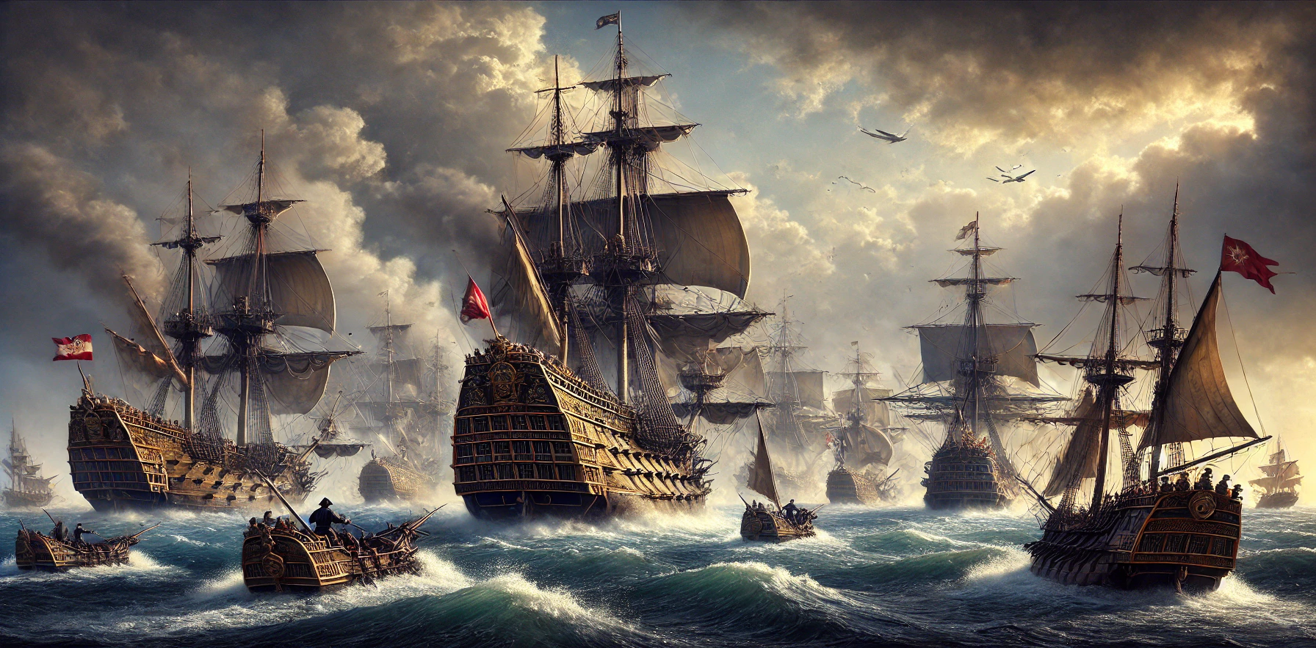History is filled with countless tales of heroism, but some victories hold significance not only for the victors but for all of humanity. One such victory is the Battle of Djerba, which took place in 1560. In the vast waters of the Mediterranean, this battle between the Ottoman Empire and the Holy League fleet was not only a test of military strategy and courage but also marked an important turning point in the history of naval warfare.
Once the Dominance of the Mediterranean
The 1560s were a critical period for controlling the sea routes and trade in the Mediterranean. The Ottoman Empire, with its powerful navy in the Eastern Mediterranean, was in fierce competition with Christian states in the region. The Holy League, particularly the French and Spanish, had united to prevent Ottoman expansion and regain control of the Mediterranean. The island of Djerba stood at the heart of this strategic struggle.
The Beginning of the Battle: Two Mighty Forces Face Off
In 1560, the Ottoman fleet, commanded by the famous Admiral Piyale Pasha, was advancing toward the island of Djerba. Meanwhile, the Holy League, under the command of French Admiral Gaspard de Coligny, had assembled a massive fleet and launched a major resistance against the Ottomans in the Mediterranean.
The battle erupted in the open waters off the coast of Djerba on a hot summer morning. The Ottoman fleet, with its superior naval skills and strategies, quickly began to gain the upper hand, surrounding the Holy League forces. The Ottomans’ numerous galleys and armored ships gave them a significant advantage over the French and Spanish vessels.
Ottoman Victory: The Power of Strategy and Courage
The Battle of Djerba was not just a naval conflict; it was a victory that showcased the Ottoman Empire’s strategic brilliance and naval prowess. The Ottoman fleet demonstrated remarkable adaptability to various weather conditions and maritime challenges. Both the individual courage of the sailors and the exceptional command of Admiral Piyale Pasha were key factors in this victory.
At the end of the battle, the Holy League suffered a crushing defeat and was forced to surrender the island of Djerba to the Ottoman Empire. The Ottomans secured a major strategic victory and solidified their dominance in the Mediterranean.
The Deeper Meaning Behind the Battle
The Battle of Djerba was not only a military victory but also a moment when the Ottoman Empire declared its maritime supremacy to the world. This triumph also highlighted the Empire’s expertise in naval warfare and its disciplined, organized approach to the seas.
Furthermore, in the aftermath of the battle, Ottoman control over the Mediterranean was strengthened, making it increasingly difficult for the Holy League to maintain a presence in the region. The capture of Djerba by the Ottomans was not only a military conquest but also had a cultural impact. The Ottoman navy would continue to solidify its presence in the Mediterranean, taking significant steps toward establishing a maritime empire.
Conclusion: The Lasting Legacy of Djerba
The Battle of Djerba is considered one of the greatest naval victories in Ottoman history. Both militarily and strategically, this victory left a lasting mark on the history of naval warfare. Today, the heroism, courage, and strategy behind the battle still resonate. Every battle carries a lesson; Djerba is not only a symbol of Ottoman triumph but also a reminder of how decisive the seas and naval power can be.

